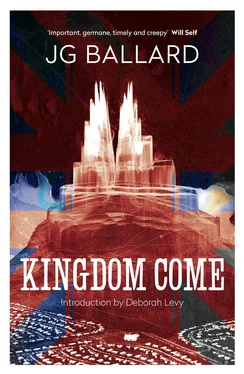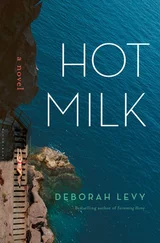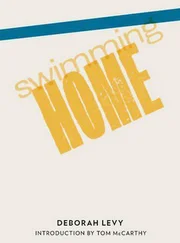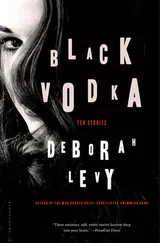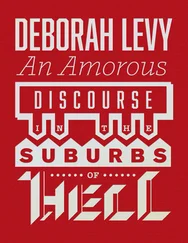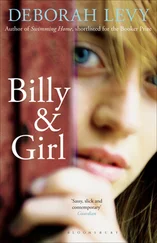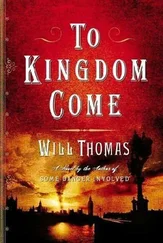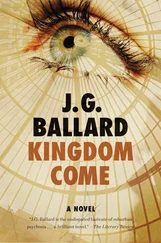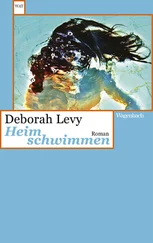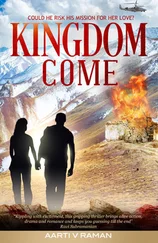He had left my strong-willed but highly strung mother when I was five, flown millions of miles to the most dangerous airports in the world, survived two attempted hijackings and then died in a bizarre shooting incident in a suburban shopping mall. A mental patient on day release smuggled a weapon into the atrium of the Brooklands Metro-Centre and fired at random into the lunch-hour crowd. Three people died, and fifteen were injured. A single bullet killed my father, a death that belonged in Manila or Bogotá or East Los Angeles, rather than in a bosky English suburb. Sadly, my father had outlived his relatives and most of his friends, but at least I had arranged the funeral service and seen him off to the other side.
As I left the motorway behind me, the prospect of actually turning the key in my father’s front door began to loom in the windscreen like a faintly threatening head-up display. A large part of him would still be there – the scent of his body on the towels and clothes, the contents of his laundry basket, the odd smell of old bestsellers on his bookshelves. But his presence would be matched by my absence, the gaps that would be everywhere like empty cells in a honeycomb, human voids that his own son had never been able to fill when he abandoned his family for a universe of skies.
The spaces were as much inside me. Instead of dragging around Harvey Nichols with my mother, or sitting through an eternity of Fortnum’s teas, I should have been with my father, building our first kite, playing French cricket in the garden, learning how to light a bonfire and sail a dinghy. At least I went on to a career in advertising, successful until I made the mistake of marrying a colleague and providing myself with a rival I could never hope to beat.
I reached the exit of the slip road, trailing a huge transporter loaded with micro-cars, each shiny enough to eat, or at least lick, toffee-apple cellulose brightening the day. The transporter paused at the traffic lights, an iron bull ready to rush the corrida of the open road, then thundered towards a nearby industrial estate.
Already I was lost. I had entered what the AA map represented as an area of ancient Thames Valley towns – Chertsey, Weybridge, Walton – but no towns were visible around me, and there were few signs of permanent human settlement. I was moving through a terrain of inter-urban sprawl, a geography of sensory deprivation, a zone of dual carriageways and petrol stations, business parks and signposts to Heathrow, disused farmland filled with butane tanks, warehouses clad in exotic metal sheeting. I drove past a brownfield site dominated by a massive sign announcing the Heathrow South extension with its unlimited freight capacity, though this was an empty land, where everything had already been sent on ahead. Nothing now made sense except in terms of a transient airport culture. Warning displays alerted each other, and the entire landscape was coded for danger. CCTV cameras crouched over warehouse gates, and filter-left signs pulsed tirelessly, pointing to the sanctuaries of high-security science parks.
A terrace of small houses appeared, hiding in the shadow of a reservoir embankment, linked to any sense of community only by the used-car lots that surrounded it. Moving towards a notional south, I passed a Chinese takeaway, a discount furniture warehouse, an attack-dog kennels and a grim housing estate like a partly rehabilitated prison camp. There were no cinemas, churches or civic centres, and the endless billboards advertising a glossy consumerism sustained the only cultural life.
On my left, traffic moved down a side street, family saloons hunting for somewhere to park. Three hundred yards away, a line of shopfronts caught the sun. A suburban town had conjured itself from the nexus of access roads and dual carriageways. Rescue was offering itself to a lost traveller in the form of neon signs outside a chain store selling garden equipment and a travel agent advertising ‘executive leisure’.
I waited for the lights to change, an eternity compressed into a few seconds. The traffic signals presided like small-minded deities over their deserted crossroads. I lowered my foot onto the accelerator, ready to jump the red, and noticed that a police car was waiting behind me. Like the nearby town, it had materialized out of the empty air, alerted by the wayward imagination of an impatient driver in a powerful sports car. The entire defensive landscape was waiting for a crime to be committed.
Ten minutes later I eased myself onto a banquette in an empty Indian restaurant, somewhere in the centre of the off-motorway town that had come to my aid. Spreading my map over the elderly menu, a book of laminated pages unchanged for years, I tried to work out where I was. Vaguely south-west of Heathrow, I guessed, in one of the motorway towns that had grown unchecked since the 1960s, home to a population that only felt fully at ease within the catchment area of an international airport.
Here, a filling station beside a dual carriageway enshrined a deeper sense of community than any church or chapel, a greater awareness of a shared culture than a library or municipal gallery could offer. I had left the Jensen in the multi-storey car park that dominated the town, a massive concrete edifice of ten canted floors more mysterious in its way than the Minotaur’s labyrinth at Knossos – where, a little perversely, my wife suggested we should spend our honeymoon. But the presence of this vast structure reflected the truism that parking was well on the way to becoming the British population’s greatest spiritual need.
I asked the manager where we were, offering him the map, but he was too distracted to answer. A nervous Bengali in his fifties, he watched the traffic moving down the high street. Someone had thrown a brick at the plate-glass window, and the scimitar of a giant crack veered from ceiling to floor. The manager had tried to steer me into the rear of the empty restaurant, saying that the window table was reserved, but I ignored him and sat beside the fractured glass, curious to observe the town and its daily round.
The passers-by were too busy with their shopping to notice me. They seemed prosperous and content, confidently strolling around a town that was entirely composed of shops and small department stores. Even the health centre had redesigned itself as a retail space, its window filled with blood-pressure kits and fitness DVDs. The streets were brightly lit, cheerful and cleanly swept, so unlike the inner London I knew. Whatever the name of this town, there were no drifting newspapers and chewing-gum pavements, no citizenry of the cardboard box. This was a place where it was impossible to borrow a book, attend a concert, say a prayer, consult a parish record or give to charity. In short, the town was an end state of consumerism. I liked it, and felt a certain pride that I had helped to set its values. History and tradition, the slow death by suffocation of an older Britain, played no part in its people’s lives. They lived in an eternal retail present, where the deepest moral decisions concerned the purchase of a refrigerator or washing machine. But at least these Thames Valley natives with their airport culture would never start a war.
A pleasant middle-aged couple paused by the window, leaning against each other in a show of affection. Happy for them, I tapped the broken glass and gave a vigorous thumbs up. Startled by the apparition smiling a few inches from him, the husband stepped forward to protect his wife and touched the metal flag in the lapel of his jacket.
I had seen the flag as I drove into the town, the cross of St George on its white field, flying above the housing estates and business parks. The red crusader’s cross was everywhere, unfurling from flagstaffs in front gardens, giving the anonymous town a festive air. Whatever else, the people here were proud of their Englishness, a core belief no army of copywriters would ever take from them.
Читать дальше
